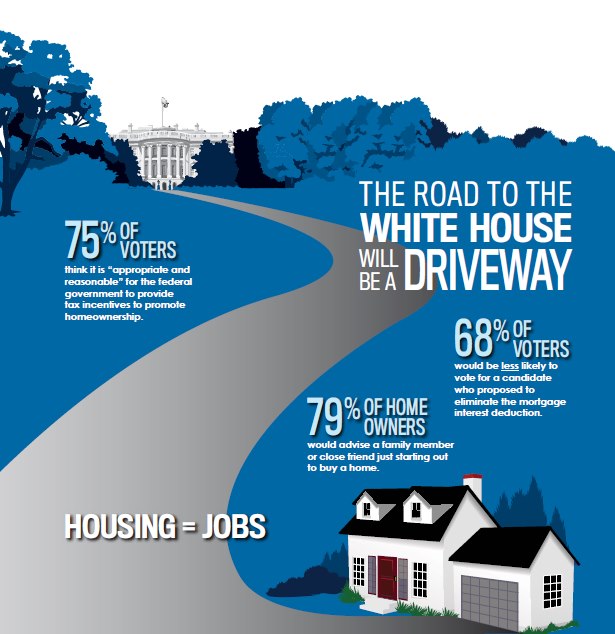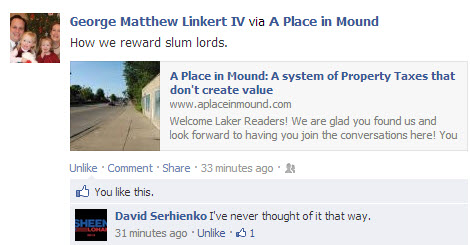Friday News Digest
For some time now, email has been my bane. I've gotten progressively further and further behind, to the point where I have emails in my "follow up" list from last January. I sometimes fight just to get my head above water and then, if I relent for a day, I'm totally swamped. This is all made worse by the fact that I feel really guilty when people take the time to write me and I don't get back to them. Since the guilt is paralyzing and keeps me from being more productive, it is a negative, self-reinforcing cycle.
This week a friend sent me the Inbox Zero video. Way too simple, but this is what I needed. I'm now doing email just twice a day, taking care of every one during that time, not thinking about email in between, and I'm much happier and more productive. As recommended in the video, the 1,000+ unanswered emails I have yet to respond to have now gone into the email DMZ, a place I will rescue them from in time. Until then, I won't be adding any new to the backlog.
So, if you have emailed me and are waiting for a reply, my apologies, but please try again.
Now, on to the news.
- For those of you in the Boston area, I'm going to be giving a lecture at MIT on Monday. It's open to the public - check out the details here.
- Next week I'm also going to be taking part in a Community Matters conference call to discuss my book, Thoughts on Building Strong Towns, the Strong Towns movement and what is coming next. We're allowing lots of time for Q&A. The event is free but prior registration is required.
- Last week I was a guest of the Michigan Municipal League and, in particular, Dan Gilmartin. He and the staff at MML were very generous and kind during the event on Mackinac Island. If you want to see how cool and topical this conference was, check out the writeup Dan did recommending much of the group to others.
- The absolute must-read article of the week is an opinion piece in the LA Times by William Fulton titled The bankruptcy-sprawl connection. Read the entire thing. Fulton, former mayor of Ventura, nails it.
It's easy to mistake a sprawling new development for prosperity. New buildings and wide new roads look great at first. But over time, the cost of serving such developments gradually bleeds taxpayers dry. More firetrucks have to travel longer distances to serve fewer people. So do police cars. And ambulances. And school buses. And dial-a-ride buses. And, up in the mountains at least, snowplows too.
Ultimately, taxpayers must also foot the bill for maintaining and eventually replacing all those roads that all those taxpayer-supported vehicles have to traverse. With California's Proposition 13 property tax system, there's no way that tax revenue can ever keep up with the cost of sprawl.
- A close second, Tanya Snyder of DC. Streetsblog reported on the incredible announcement of MassDOT's Secretary who said the state is done building superhighways. While literally every DOT secretary should be making this announcement, it was really a ray of hope to hear one finally say it. Hopefully this will be a catalyst for others. Like a DOT secretary support group. The first step is admitting you have a problem.
- Maybe the Texas DOT can join Massachusetts, although I believe the average Texan will give up their gun before their car. You will have to pry the keys out of their cold, dead hand, or so the saying goes. A recent study indicated that Texas' transportation system is in deep financial trouble, a problem they continue to misdiagnose a lack of resources.
State Rep. Joe Pickett, D-El Paso, who sits on the House Transportation Committee, says the TRIP report is not a revelation, citing similar studies by the Texas Department of Transportation and other organizations. "They still don't address the main issue," Pickett said, "and that's how we're going to pay for it." Pickett says that the lack of public awareness and an unwillingness to take some politically unpopular actions are the main reasons for funding shortfalls.
- And this, from Upland, CA, made me wonder whether the City Manager was clueless, the reporter was clueless, or both. Maybe this guy should run for president?
"When I'm good and ready, which is pretty close, I have a number of issues that I'm dealing with," Dunn said. "I have to figure out potential solutions for those issues and I don't work in a vacuum. I don't have all the answers. All I can do is study it, try and look at alternatives and try and present the information as fully as I possibly can and make my recommendation to this board here. It's up to them to make the decisions."
- Last week on the podcast, Ian Rasmussen and I discussed Amazon Prime, the service from the online retailer that provides free two-day shipping. This week, Wal-Mart announces a same-day delivery service. The big box model has reached its apex and there is a huge push to find the next viable business model. My gut tells me, at least for Wal-Mart, that this isn't it.
This time, Wal-Mart is betting that its network of thousands of stores, combined with an improved online presence and strong financials, can help it compete head to head with Amazon, which has increasingly stressed fast, free or low-cost deliveries. Amazon launched same-day shipping in 10 cities in 2009.
But shipping from stores, rather than from warehouses as Amazon does, is expensive, analysts said.
- And like Best Buy and McDonalds, Wal-Mart is now also flirting with the boutique model, essentially a smaller, neighborhood version of their store. This is sheer fantasy -- I don't see any way that the Wal-Mart model works at the neighborhood level without dramatic shifts like franchising and much higher prices -- but it should signal to everyone where the market is going. The Suburban Experiment is in the contraction phase. Even Wal-Mart knows that.
The focus on small stores is part of Wal-Mart’s overall strategy to continue increasing sales while becoming more efficient with its capital expenditures across the globe. Its U.S. namesake business is roaring back, thanks to re-emphasizing rock-bottom low prices, and officials say they want to apply that same discipline to how it approaches its store expansion.
- Speaking of the podcast, our super hero friend, Cap'n Transit, had his own take on Ian Rasmussen's party analogy. Both are worth your time.
- Ran across this piece of propaganda from the U.S. Home Builders Association. They are (clumsily) trying to make the case that continuing to prop up the housing market should be the top priority for the candidates as this is the winning issue. They are right -- families are desperate to have their homes appreciate and nothing would be more helpful to the middle class -- but I suspect the candidates both understand that (a) inflating house prices is a big part of the current dilemma and (b) the government is already doing everything possible (and some things that are totally reckless) to make this happen. I wish the builders would embrace the reality of a different business model because we need good quality construction professionals employed to fix our existing places.

- Misplaced desperation is not limited to the home builders. There is so much incoherence in this article about my twin hometown of Baxter, MN, but I'll just focus on the silly notion that a couple hundred dollar break in fees would change the market for something valued in the hundreds of thousands of dollars. The problem with a city like Baxter is not its ability to game new development today, but to sustain everything that it has built with such a comparatively small tax base tomorrow.
Council member Mark Cross floated the idea of offering a break in water and sewer fees as an incentive to home building on lots already served with city utilities.
Cross said it would be a way to in-fill those vacant lots. Offering that incentive could spur building on the empty lots and make the system operate more efficiently, Cross said.
- George Matthew Linkert is out there spreading the good word, working to make Mound a Strong Town. These are the heroes our country needs right now -- people willing to speak up and work to make incremental changes over time in their own hometown. His recent piece on the property tax is an example. His efforts have even attracted coverage from the local newspaper. Keep going, George. This is awesome.

- From the You-Can't-Make-It-Up department, after the big discussion we had here on shared space and Kansas City, Kansas City is trying to convert 37 signalized intersections to four way stop signs. While it is a baby step in the right direction -- one that will save them millions immediately while also improving the value of its neighborhoods simultaneously with improving travel times and improving safety -- it is being strongly opposed by residents. Welcome to my world, K.C. You've created a monster.
- I believe that one of the positive side effects of local governments falling apart will be their inability to squash good ideas and initiatives. If we have $6 per gallon gas like they do in parts of California, shouldn't we be encouraging people to ride share?
Uber sends drivers in luxury vehicles to pick up passengers whose credit cards are automatically charged flat fees or fares calculated by GPS. Lyft and SideCar connect people needing rides around San Francisco with drivers who pick them up in private vehicles. Drivers are screened and insured by the companies, and collect "suggested" but voluntary donations for their rides.
"It's a whole new way of thinking about transportation," said John Zimmer, Lyft co-founder, the only operator who would comment. "It's a whole new way of thinking about community."
It's also unsafe, illegal and risky, said Lindh.
While the companies say that they screen drivers and provide sufficient insurance, some of the drivers don't have commercial licenses and there's no independent verification of the screenings or insurance, Lindh said. The commission contends the companies are violating a state law that says any nongovernment entity providing passenger transportation services must obtain a charter party carrier license. The permits, which cost $1,100, are issued after regulators verify that the company has properly licensed and screened operators and adequate insurance, said Terrie Prosper, a commission spokeswoman.
- Feel like you need a better understanding of the fiscal cliff? This was a good 101 presentation.
- I loved this article and am really looking forward to the release of the book. Building Strong Towns is about our wallet -- yes -- but the best side effect may be felt in our soul.
Over the past decade we've finally figured out that we can damage our experience of human community by designing homes and subdivisions that encourage isolation. But the pressing question now is whether we can fix the problem simply by changing our building practices. One way to frame that question is, If we re-learn how to build neighborhoods, will people automatically start acting neighborly again? I think the answer is 'no,' but it leads naturally to the question, What can the church do to help rebuild a sense of community in our neighborhoods?
- And finally, in the heat of the election season, let's never forget that we elected this man to run my home state of Minnesota. And while we are pondering that, let's acknowledge that more actually got done in a positive way during those four years than have since. Is our current systems of debates and the "spin room" any less silly or likely to produce someone better?
Enjoy your weekend, everyone. I'm in upstate New York for a couple of talks and meeting up with some good friends. Will be back Monday with more to share.
 If you would like more from Chuck Marohn, check out his new book, Thoughts on Building Strong Towns (Volume 1).
If you would like more from Chuck Marohn, check out his new book, Thoughts on Building Strong Towns (Volume 1).
You can also chat with Chuck and many others about implementing a Strong Towns approach in your community by joining the Strong Towns Network. The Strong Towns Network is a social platform for those working to make their community a strong town.
